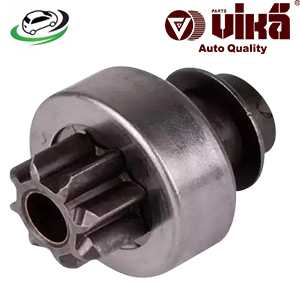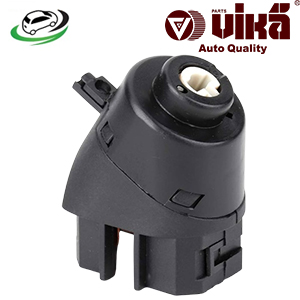-40%
Get Fuel Filter Audi RS6 4.2T 6N0201511A
The fuel filter is a critical component in a vehicle’s fuel system. Its primary role is to remove impurities and contaminants from the fuel before it reaches the engine. This ensures that the engine receives clean fuel, which is essential for optimal performance, efficiency, and longevity. Understanding the functionality, types, symptoms of failure, and maintenance of the fuel filter is crucial for vehicle owners and automotive technicians.
Functionality of the Fuel Filter
The fuel filter performs several important functions in the fuel system:
- Contaminant Removal: The primary function of the fuel filter is to trap and remove impurities such as dirt, rust, and debris from the fuel. These contaminants can come from the fuel tank, fuel lines, or even the fuel itself.
- Protect Engine Components: By filtering out contaminants, the fuel filter helps protect critical engine components such as fuel injectors, the fuel pump, and the combustion chamber from damage and wear.
- Ensure Efficient Combustion: Clean fuel is essential for efficient combustion in the engine. The fuel filter helps ensure that the fuel delivered to the engine is free of impurities that could affect performance and fuel economy.
- Prevent Clogs: A properly functioning fuel filter prevents contaminants from causing clogs in the fuel lines or injectors, which can lead to reduced engine performance or stalling.
Components of a Fuel Filter
A typical fuel filter consists of the following components:
- Filter Media: The filter media is the material inside the filter that captures and holds contaminants. It can be made from various materials, including paper, synthetic fibers, or metal mesh.
- Filter Housing: The housing is the outer casing of the filter that contains the filter media. It is usually made from metal or durable plastic.
- Inlet and Outlet Ports: These are the connections through which fuel enters and exits the filter. They are designed to securely connect the filter to the fuel lines.
- Bypass Valve: Some fuel filters have a bypass valve that allows fuel to pass through if the filter becomes clogged or restricted. This ensures that the engine continues to receive fuel, though it may be less clean.
Types of Fuel Filters
Fuel filters come in various types, each suited to different vehicle requirements and fuel systems:
- Inline Fuel Filters: These are the most common type, installed along the fuel line between the fuel tank and the engine. They are typically cylindrical and can be located under the vehicle or in the engine bay.
- Cartridge Fuel Filters: These filters are usually located within a housing and can be replaced by removing the old cartridge and installing a new one. They are commonly found in modern vehicles.
- Pre-Filter: Some vehicles have a pre-filter in addition to the main fuel filter. The pre-filter is designed to remove larger particles before the fuel reaches the main filter.
- Integrated Fuel Filters: In some vehicles, the fuel filter is integrated into the fuel pump assembly or fuel tank. These filters are not easily accessible and may require more extensive work to replace.
Symptoms of a Failing Fuel Filter
Recognizing the signs of a failing fuel filter is essential for maintaining vehicle performance and avoiding potential damage:
- Engine Performance Issues: A clogged or dirty fuel filter can cause poor engine performance, including hesitation, sputtering, or reduced acceleration.
- Difficulty Starting: If the fuel filter is clogged, it can restrict fuel flow to the engine, making it difficult to start the vehicle or causing it to stall.
- Decreased Fuel Efficiency: A failing fuel filter can lead to decreased fuel efficiency as the engine struggles to receive a consistent supply of clean fuel.
- Engine Stalling: If the fuel filter becomes severely clogged, it can cause the engine to stall or cut out unexpectedly.
- Check Engine Light: In some cases, a failing fuel filter can trigger the check engine light on the dashboard, indicating a problem with the fuel system.
Causes of Fuel Filter Failure
Several factors can contribute to fuel filter failure:
- Contaminated Fuel: Impurities and contaminants in the fuel can clog the filter over time, reducing its effectiveness.
- Extended Service Intervals: Failing to replace the fuel filter at regular intervals can lead to clogging and reduced performance.
- Rust and Corrosion: Rust or corrosion from the fuel tank or fuel lines can contribute to filter clogging.
- Debris in the Fuel Tank: Sediment and debris that accumulate in the fuel tank can be drawn into the fuel filter and cause it to fail.
Maintenance and Replacement
Proper maintenance of the fuel filter involves regular inspections and timely replacements to ensure optimal performance:
- Regular Inspections: Periodically check the fuel filter for signs of clogging or contamination. This can be done during routine vehicle maintenance or when addressing fuel system issues.
- Follow Manufacturer’s Recommendations: Adhere to the manufacturer’s recommended replacement intervals for the fuel filter. This information can be found in the vehicle’s owner’s manual.
- Replace as Needed: If any symptoms of a failing fuel filter are observed, or if the filter is due for replacement based on mileage, replace it promptly to maintain engine performance and fuel efficiency.
Replacement Process
Replacing a fuel filter typically involves the following steps:
- Prepare the Vehicle: Park the vehicle on a level surface and ensure the engine is off. If the fuel system is under pressure, relieve the pressure by following the manufacturer’s instructions.
- Locate the Fuel Filter: Identify the location of the fuel filter. This could be along the fuel line, within the fuel pump assembly, or integrated into the fuel tank.
- Remove the Old Filter: Disconnect the fuel lines from the filter using the appropriate tools. Be prepared for some fuel spillage and use safety precautions to avoid spills.
- Install the New Filter: Position the new fuel filter and connect it to the fuel lines. Ensure all connections are secure and there are no leaks.
- Test the Vehicle: Start the vehicle and check for proper fuel flow and any signs of leaks. Ensure the engine runs smoothly and there are no performance issues.
Importance of Quality Fuel Filters
Using high-quality fuel filters is essential for several reasons:
- Performance: Quality filters ensure effective removal of contaminants, contributing to optimal engine performance and fuel efficiency.
- Durability: High-quality materials and construction enhance the filter’s longevity, reducing the need for frequent replacements.
- Reliability: Reliable filters prevent clogging and ensure consistent fuel delivery to the engine, preventing potential damage and performance issues.
- Cost-Effectiveness: Investing in a quality fuel filter can prevent costly repairs and maintain overall vehicle performance.
Follow us on Facebook for more parts.



